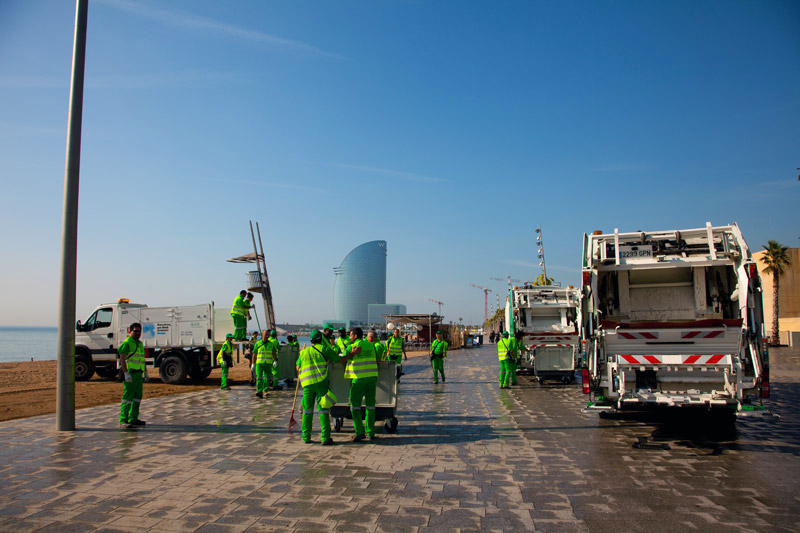Urbaser, the world leader in environmental management, has transformed its business, simultaneously improving its services and reducing its environmental impact.
A global company which focuses on sustainability, Urbaser covers the entire value chain of environmental management, from the conception of projects, the design and implementation of construction, the treatment and recycling of waste, and more. The company serves more than 50 million people in more than 20 countries, with 40,000 employees and more than 160 subsidiary companies.
As specialists in obtaining energy and resources from waste, Urbaser turned to technology as a way to transform and improve its operations:
“Urbaser is a leading company with a commitment to offer excellent and effective services to citizens, which improve their quality of life, while protecting the environment in the best possible conditions. We are currently looking for new methods of transforming waste into resources. We want to offer integrated solutions for environmental problems within the framework of Smart Cities and the circular economy in the future, ” says Manuel Andrés Martínez, General Director of Urbaser Urban Services.
Technology for good
Urbaser works continuously to transform its services through the application of the latest technologies. In this way, it uses technology to strengthen its services within its various business applications.
Francisco Devís de Arano, Director of Information Systems at Urbaser explains that “After analysing the different cloud service options offered by the world’s leading technology companies, we have chosen Microsoft Azure to implement our own IoT platform. The reasons for this decision are the wide range of services it offers and the flexibility of the architecture of its platform. ”
Urbaser is already executing the first version of its IoT platform, which allows it to manage all its assets, from its vehicle fleet, industrial processes carried out in its waste and water treatment plants, and other various assets distributed in cities, such as its waste receptacles.
The Urbaser IoT roadmap has initially focused on its urban services, especially in waste collection and street cleaning. By being able to track vehicles and waste receptacles through the IoT sensors, (and the subsequent transmission of information to the Microsoft Azure cloud platform), it is possible to create information systems in real time.
These systems are used by managers of urban services to optimise the resources dedicated to all tasks, maximizing the level of service to the city while improving collection routes, reducing the noise levels, and decreasing fuel consumption and emissions.
Álvaro Palomo Navarro, Head of IoT at Urbaser states that “Urbaser’s IoT strategy includes the progressive incorporation of its thousands of vehicles around the world and of waste treatment plants within the IoT architecture. In addition, Urbaser has also opened the doors to artificial intelligence and machine learning. All of this will help us improve the quality of our services and reduce our impact on the environment.”




